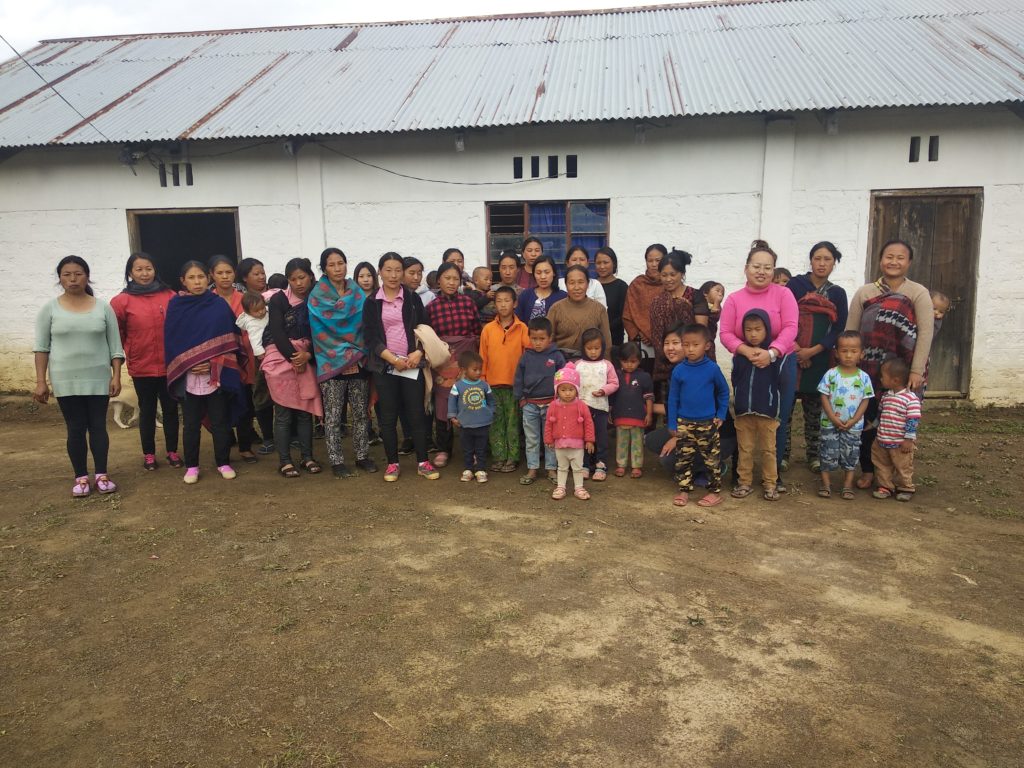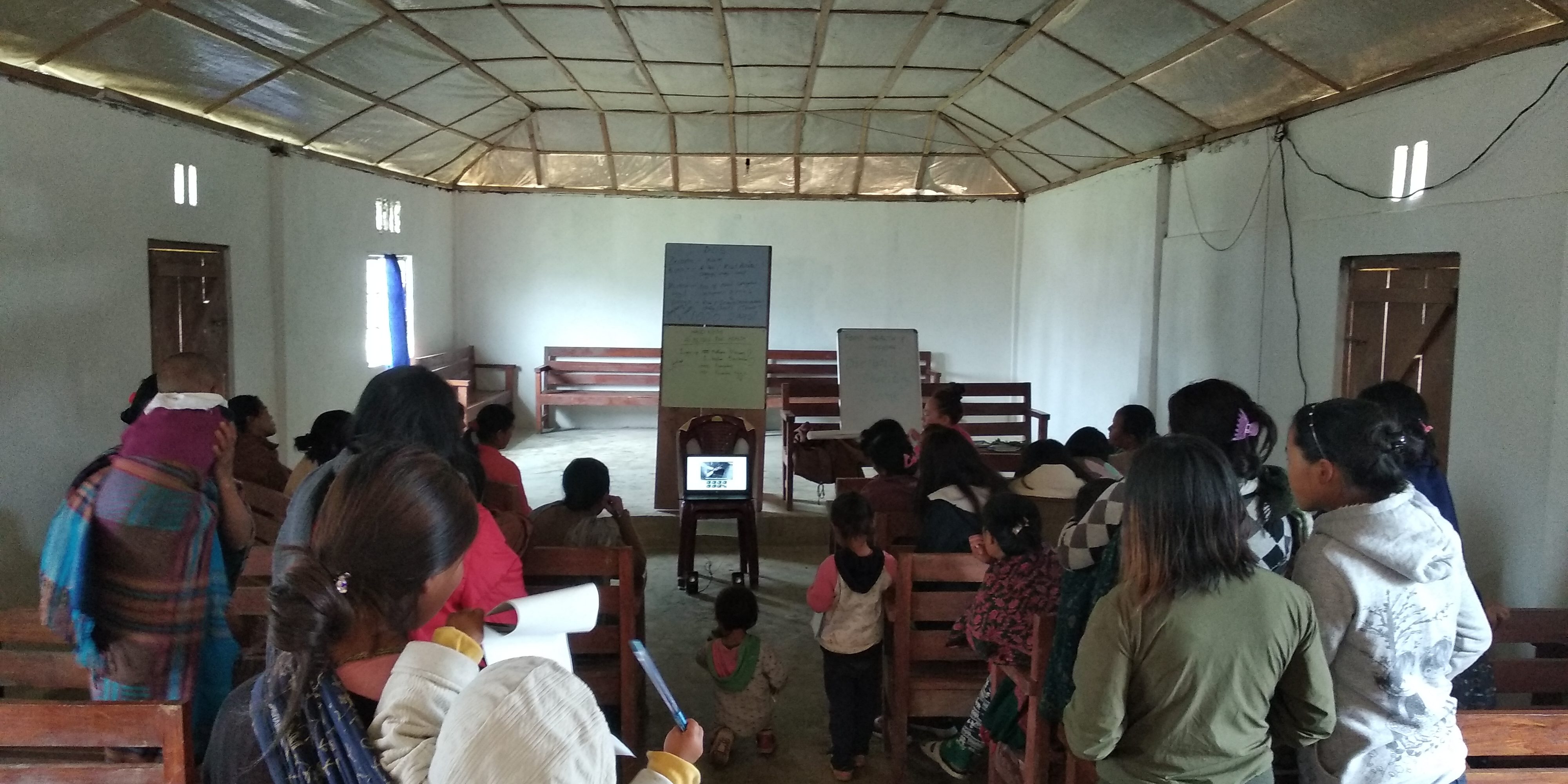Razeba, Nagaland
On the 17th of April, NEN organized a Health and Nutrition Programme here with the agenda to promote the consumption of indigenous food through the introduction of innovative recipes to cater to modern taste and preferences with the idea of introducing healthier options of consumption. In the workshops, the 1000 days and Hand Wash campaigns were also introduced to the participants as Nutrition and Hygiene is synonymous to health.
The participants were asked to take part in a Dietary Diversity Score (DDS) Activity where they were shown the variety of food one consumes on daily basis. The Activity demonstrated how most homes are limited to only 3-4 categories of food whereas to get a balance diet one needs to consume a minimum of 5 categories from the 10 categories drawn out by FAO. The outcome of the DDS as anticipated, showed that the participants consumed only 4 categories of food in their daily diet. Building on the results of the Activity, the importance of having diversity in diets was re-emphasized. The discussion was furthered by introducing the 1000 days campaign and its importance for a healthier generation through good rearing practises such as proper nutrition, sanitation & hygiene emphasising on washing hands with soap. The practise of washing hands has never been taken seriously and hence mothers were implored to learn proper handwashing techniques to ensure hygiene standards at the household level. The harmful effects of improper handwashing were also discussed to further encourage community members to take up the idea. This was followed by a video on the hygiene for Food Handlers. Thereafter, all steps from the Video were demonstrated at the workshop to give the participants a hands on experience.

Cooking Demonstration
As part of the cooking demo, recipes such as Mix Herb Salad (seasonal herbs and vegetables), Vegetable Fried with Fox tail Millet (Multi nutrient grain), and Jobs tears with Red Sorghum Porridge were taught to the participants to promote the consumption of local food. The Participating communities also contributed by sharing Local/Traditional recipes such as Khaüdzü, Galho, Kholar cooked with smoked pork and wild herbs. These local recipes themselves cover a variety of food categories.






